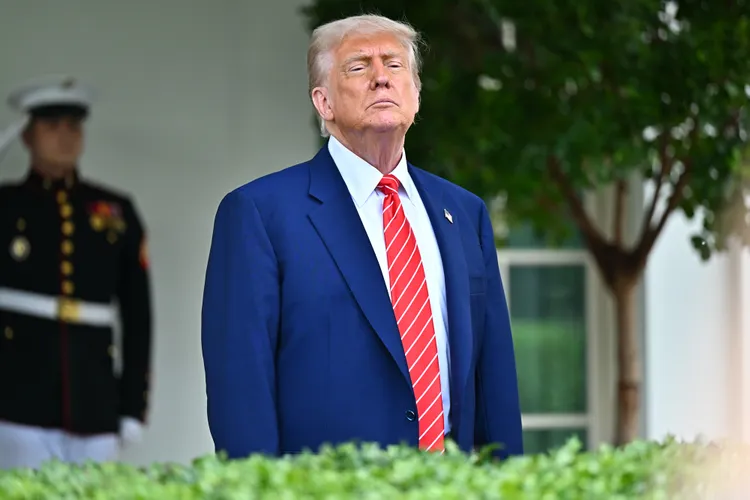Trump says saving lives in Ukraine could be his ticket to heaven
- Aug 19, 2025
- 2 min read
19 August 2025

In a moment that felt surreal yet profoundly revealing, President Donald Trump, dialing into Fox & Friends on August 19, 2025, unveiled an entirely new rationale for his self‑styled role as “mediator in chief”: a deeply personal, spiritual motivation tied to a desire for eternal reward. With characteristic bluntness and even a tinge of self‑deprecating humor he confessed, “I want to try and get to heaven if possible,” conceding that he’s “at the bottom of the totem pole” when it comes to achieving salvation. Yet he suggested that if he could save as many as 7,000 lives each week through ending global conflicts, perhaps it would boost his spiritual standing a strange intersection of geopolitics and the afterlife.
Underlying this moment is a broader narrative of Trump’s second term: one where global diplomacy is pitched not as an exercise in statesmanship or international policy, but as a path to personal redemption. He positioned himself at the center of major conflicts claiming influence in disputes between Israel and Iran, India and Pakistan, and in Africa’s Democratic Republic of Congo yet reporting and analysts argue these claims are often overstated, with violence still erupting despite Trump’s assertions.
Trump’s faith drive has become more pronounced. After surviving an assassination attempt last year, he has leaned into religious symbolism more overtly. A recent move to broker peace talks between Ukraine and Russia became, in his telling, both political ambition and spiritual imperative. Yet ceasefire remains elusive, and while he met face-to-face with President Putin, the summit in Alaska ended without tangible progress toward truce.
The messaging around this blend of peace and personal salvation sent ripples through media and pop culture. Even the animated satire of South Park flagged Trump’s spiritual melodrama, caricaturing his quest for heavenly redemption and commercializing the spiritual subtext for comedic effect. Fox News hosts responded with gallows humor some joked that Trump’s “childlike spirit” could be his appeal, noting his simple tastes and his survival of assassination as a “divine sign”
Others voiced concern. A report from The Daily Beast pointed to this shift toward religious rhetoric rife with talk of heaven and totem poles as raising questions about Trump’s mental and physical health. At 79, signs of fatigue, confusion, and cognitive missteps have become more apparent. Critics argue that his fixation on spiritual validation may be symptomatic, not profound.
Still, Trump remains doubled down. To him, peace is not just policy; it is penance, ambition, and affirmation. Whether he’s truly motivated by souls saved, or by the prospect of a prestigious Nobel Peace Prize or both he frames his geopolitical theatrics as a moral ledger, where each life saved may serve as a final entry toward vindication.
For the American public and world leaders, this admission presents a startling dual portrait: on one hand, a leader pursuing peace; on the other, a mortal reckoning with divine judgment. It’s a narrative heavy on existential stakes and light on policy clarity an appeal to morality wrapped in power’s spectacle.



Comments